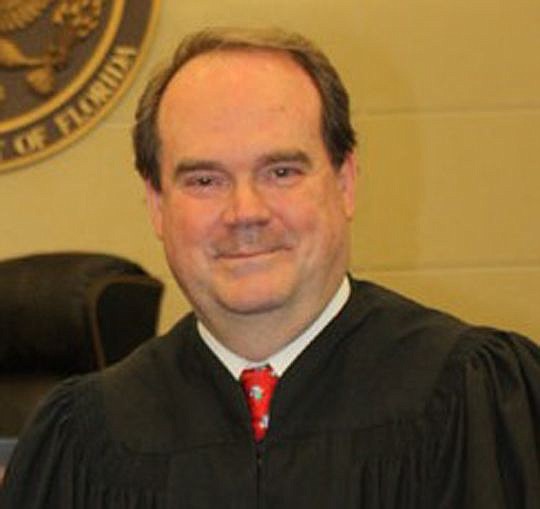
“Between a rock and a hard place” could describe someone who can’t afford to retain counsel but makes too much money to qualify for legal aid.
U.S. District Judge Timothy Corrigan said the new Florida Commission on Access to Civil Justice established last week by the state Supreme Court will bring new focus to an issue that has been addressed over the years in a variety of ways, such as the availability of legal aid services and pro bono representation.
“Even working people sometimes can’t afford representation. There’s a gap,” said Corrigan, who was appointed to the
commission.
The 27-member panel will study the unmet civil legal needs of disadvantaged, low- and-moderate-income Floridians.
Recommendations will be made based on the state’s legal assistance delivery system as a whole, including staffed legal aid programs, resources and support for self-represented litigants, limited scope representation, pro bono services and potential innovations.
In addition to Corrigan, Northeast Florida appointees include Jim Kowalski, executive director of Jacksonville Area Legal Aid; state Sen. Rob Bradley; Thomas Edwards Jr., a Jacksonville attorney; and retiring appellate court judge William Van Nortwick, who is joining the Jacksonville office of Akerman.
Attorney General Pam Bondi and Chief Financial Officer Jeff Atwater also are on the panel, which is chaired by Chief Justice Jorge Labarga.
The court cited that while the population eligible for legal services corporation-funded legal services “has grown dramatically” in recent years, federal funding for such programs declined approximately 17 percent from 2010-12.
The Florida Bar Foundation has been forced to reduce its contributions to legal aid associations statewide. In Jacksonville, the city reduced funding for Jacksonville Area Legal Aid, leading to several layoffs and a one-day-per-week furlough for the staff.
The court also noted that the number of self-represented litigants has increased significantly over the past decade. Also, the majority of family law matters now include at least one unrepresented party, some of whom are unable to prepare court documents and effectively present their positions in court proceedings.
Establishing a plan to develop solutions is not a new idea.
The Washington State Access to Justice Board, the first in the nation, was established in 1994. By 2000, there were three state justice commissions advocating for access.
Florida is the 33rd state, plus Puerto Rico and the Virgin Islands, to establish an initiative to help ensure access to representation or at least assistance for all who require it.
It’s about time, said one commission member.
“There are access to justice commissions all around the country, but never, as a state, have we been fully engaged in the concept,” said Kowalski, of Jacksonville Area Legal Aid.
Kowalski said the business community has a vested interest in ensuring access to legal representation.
“Access to justice affects the state’s businesses because people who live in fear aren’t productive at work,” he said..
The commission also will bring together different constituencies to improve access to the courts for those who are underserved, particularly litigants who don’t meet the financial qualifications for legal aid but still need an attorney.
It’s not uncommon for a litigant in federal court to self-represent. The Middle District of Florida developed a website to make access to information and legal forms available to people who have no choice but to appear in court without an advocate, he said.
However, the adage, “He who represents himself in court has a fool for a client” is not without merit.
“Anyone will tell you, it’s best to have a lawyer. It’s best for the other side to have a lawyer representing a client and it’s certainly best for the court to have advocacy on both sides,” said Corrigan. “But the reality is it’s difficult to always find lawyers for people who need lawyers in a way that makes economic sense.”
The commission has not yet scheduled its first meeting, but Kowalski is optimistic the final product will be an asset to the state.
“It’s a new start to engage the Bar and business leaders on a topic that’s important to Florida’s economy,” he said.
The commission likely will study what has been done in other jurisdictions to improve access to the courts.
“We’re not going to re-invent the wheel,” said Corrigan. “We’re going to look at best practices.”
The commission is directed to submit an interim report to
the Court no later than Oct. 15 and a final report and recommendations no later than June 30, 2016.
The Florida Bar is directed by the court to provide staff support for the commission to carry out its duties.
For more information, visit flaccesstojustice.org.
@DRMaxDowntown
(904) 356-2466